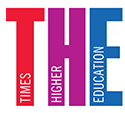Higher education must double down on the liberal education values of interdisciplinarity, experiential learning and critical thinking, says Eric Skipper
Covid-19, true to its reputation as an accelerant of economic and societal trends, has played an outsize role in sharpening divides and exacerbating existing societal ailments. Digital technologies are up, exacerbating already sharp disparities between economic classes. Digital interactions are up, resulting in increases in loneliness and despair. Misinformation is up, resulting in increased political polarisation.
As we advance further into an accelerated (and accelerating) digital age, we must respond to the negative effects that accompany the marvels of digitisation. A collective conscience that places a premium on fundamental human values is requisite.
A renewed commitment to the liberal arts is one obvious source of succour. Returning to the provenance of all knowledge is as instinctive as it is right. However, to address the ills of an increasingly divided society, integration will be key. Maximising the impact of liberal arts education will be achieved through a commitment to interdisciplinarity, experiential learning and engaging diverse perspectives.
In his 2017 book The Fuzzie and the Techie: Why the Liberal Arts Will Rule the Digital World, Scott Hartley points to the inter-reliance of humanists and technocrats that is needed for a healthy society. “Techies”, through the study of liberal arts, must recognise the human consequences of technological advances. The well-rounded technocrat will anticipate and mitigate the negative consequences of social media, automation and artificial intelligence. Increasingly, firms will turn to chief technology ethics officers to anticipate and mitigate tech challenges.
But the need for interdisciplinarity is a two-way street. Humanists – “fuzzies” – must possess tech and data literacy to understand the pitfalls inherent in the digital super-grid, to which we have entrusted our communications, transactions and operations. The humanist must understand the algorithms and data structures that can enhance or obfuscate the exchange of information and ideas.
In addition to beefing up requirements in the liberal arts, we must encourage undergraduates to pursue an academic minor in a discipline far afield from their major. Forward-looking academic programmes that fuse humanist and tech disciplines to improve cross-disciplinary understanding will be at a premium in an increasingly digitised world.
Experiences such as internships, service learning and study abroad can enhance skills that are traditionally associated with the liberal arts, such as intercultural competencies, communication and problem-solving. A relentless commitment to building these skills is needed to counterbalance the impact of technological advances.
In his 2018 book Robot Proof, Northeastern University president Joseph Aoun contends that the virtues of a liberal arts education hold little practical value without the opportunity to apply them. Engagement in problem-solving moves students beyond the theoretical and into the dynamic space where multiple disciplines and perspectives converge, allowing them to develop new ideas and address complex societal challenges. It also helps build the teamwork and communication skills required to participate in a nuanced and distributed new economy. This will be the antidote to seclusion and quiescence in an increasingly automated world.
The academy has a well-deserved reputation for challenging the existing order for the sake of furthering knowledge. In the best tradition of the liberal arts, higher education must provide outlet to a range of viewpoints, debating and evaluating them based on their merits. Otherwise, it risks contributing to the very thing it purports to fight: thoughtless intellectual conformity.
The Platonist is compelled to recognise zealotry or prudence across the political spectrum and, in the US, the number of voters who align themselves with neither major political party is on the rise. However, students are increasingly reluctant to share their political views in class. If students do not learn to robustly engage in civic discourse in the academic environment, where will it happen?
Jonathan Rauch, author of the recently published The Constitution of Knowledge: A Defence of Truth, laments the lack of viewpoint diversity in today’s academic environment and observes that a number of academic fields have become politicised – the “one thing good science should not be”.
We must mix the information diet, recognising that in the digital age content substantiating our personal beliefs and preferences is presented to us algorithmically. The pursuit of truth must be as dispassionate as it is dogged; the rigorous examination of issues depends on it.
Higher education must double down on the liberal education values of interdisciplinarity, experiential learning, and critical thinking. In doing so, it will empower a workforce and citizenry that prioritises human welfare over all else – whatever technology throws at us.
Eric Skipper is provost and executive vice-chancellor for academic affairs at the University of South Carolina-Beaufort.

0 Comments